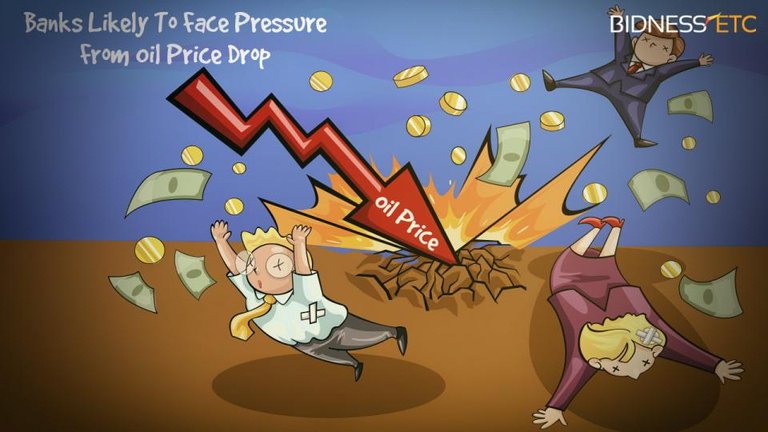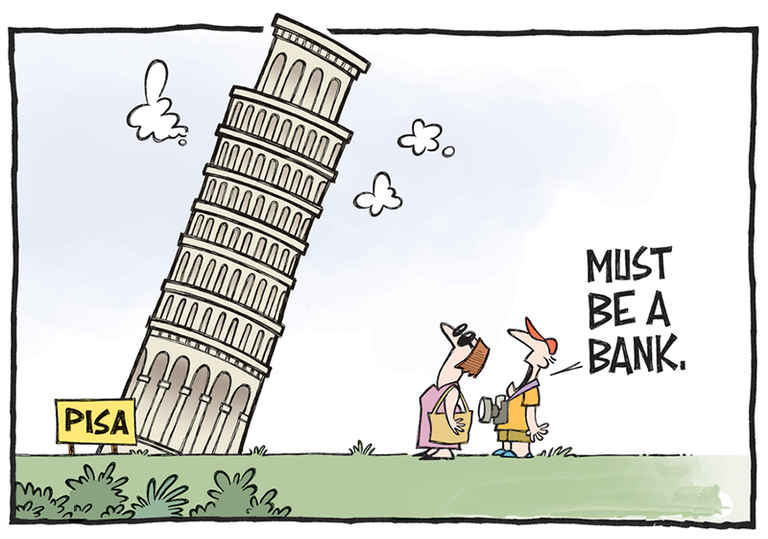This decade has been quite harsh for the banking sector. Starting with the spectacular downfall of high-leveraged Bear Stearns and their sale to JP Morgan in mid-March 2008, continuing to the collapse of Lehman Brothers in September 2008 - the biggest bankruptcy in US history - the banking sector does not seem to it is able to recover.
The current economic environment is not very helpful. Low and negative interest rates, a decline in bond yields, which does not seem to end and growing property bubble puts into question the security of international banks. This applies fully to European banks, which also have little success in recent years.

If this is not a global banking crisis, it is most likely related to bad debts projected oil. So Bank of America was forced to add a billion dollars in savings fund as a precaution. And then of course came the repayment of Greek debt - € 28 billion of which are held by German banks and French Credit Agricole holds about 3.5 billion. Euros, making it the most unprotected European commercial bank.
Do not forget Brexit, which was the most recent blow to European banks. It devastated the British financial sector, which led to a decline of tens rates of major banks such as Royal Bank of Scotland, Lloyds and Barclays.
A country recently CCB paint a bleak picture which highlighted a number of clear and rather sharply truths. However, this also applies to its European counterparts. Still no European bank has failed to fully recover from the financial crisis.
Unfortunately, the financial crisis only resulted in a downward trend. It is clear that based on current market prices of bank shares, the plan of the European Central Bank failed to solve any major problems nor bring back investor confidence in the financial system.
The fact that most European banks came literally to the bottom is not the only thing to worry about. The results of stress tests of the Federal Reserve were delivered at the end of June and this has brought additional concerns.
Although all major US banks passed the stress tests , American subsidiaries of two European banks - Deutsche Bank and Spain's Santander - failed.
Worse, the International Monetary Fund said Deutsche Bank as the biggest threat to the global financial system. Credit Suisse is third in the list of most dangerous banks, the International Monetary Fund, just behind another European counterpart - HSBC.
Another major threat to European banks is approaching - the revaluation of the index Euro Stoxx 50 Index in September. Analysts say SocGen, are likely Deutsche Bank and Credit Suisse to drop out of the index because of significantly reduced the market capitalization of the banks (by $ 48.3 billion. To $ 17.7 billion. From $ 57.1 billion. To $ 20.3 billion. Respectively).
This will obviously be very bad news for both banks, which will launch sales, and this will make significantly more expensive recruitment of much-needed capital. This will enable the launch of a circular spiral with greater threat of bankruptcy.
Currently there is only one issue that concerns everyone. If any of the major European banks fail, will there be any bailout after all quantitative easing, which were added to the plan of the European Central Bank? The answer is the subject of harsh debate.


Not a single article of the European banks would be complete without mentioning the current state of the Italian banking sector, which is still quite risky. Those of you who keep track of Banca Monte dei Paschi di Siena's, you might have noticed major movements of shares in the past three weeks. This bank desperate for any public contribution to its recapitalization, but the EU position remains uncertain. Current estimates indicate that about 17% of Italian loans are non-performing . The reputation of the financial sector in Italy as corrupt will undoubtedly make it harder for Italy to keep money European taxpayers.
I upvoted You
Very good disucssion. Good to see I'm not the only one that is thinking about this. The coin market will be turbulent for the upcoming year(s) but I really believe in the blockchain as a technology. I was researching a way to do better investment analysis on the current cryptos. I really advice people to take a look at: https://www.coincheckup.com They seem to give this complete indepth analysis of all cryptocoins. Sorted by team, product, company, advisors, previous investors, etc. For example: https://www.coincheckup.com/coins/Steem#analysis To watch Steem Investment research.